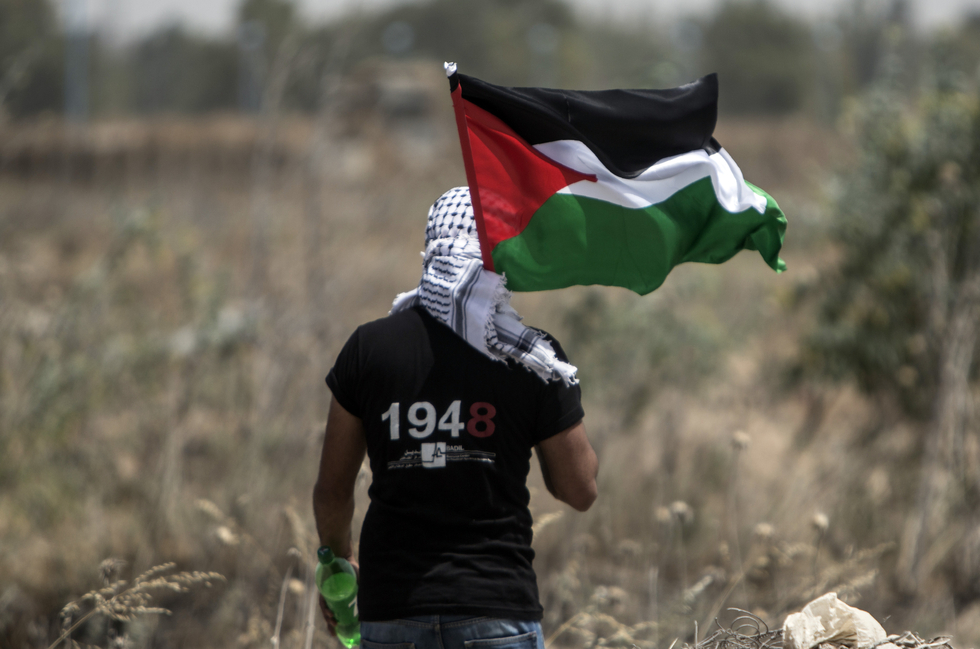This was the first time that the Palestinians of occupied territories, or as called Arab Israelis, were arranging such a massive protest in response to the occupational policies of the Israeli regime and acting within a national Palestinian capacity.
Since then, the Land Day has been regarded an significant issue in the historical struggle of the Palestinian nation against occupation and every year, the Palestinians observe this day.
But certainly, this year's Land Day ceremony will be held in very different conditions than previous years. These days, the Palestinians in Gaza are busy defending their land against the barbaric invasion of the Israeli military, and since the beginning of the invasion, more than 32,000 Palestinians were killed and hundreds of thousands others injured, and those alive are living an excruciating life under the heavy pressure of displacement and starvation. During this period, the Gaza Strip has been systematically reduced into a ruin. Civilian infrastructures including houses, hospitals, schools, mosques, and other holy sites and government and non-government institutions have been targeted by the Israeli regime's ground and air attacks. Buildings of the United Nations Relief and Works Agency (UNRWA) have also been destroyed by airstrikes. Now, the enclave is completely uninhabitable.
On the other hand, this year's Land Day coincides with the final days of the holy month of Ramadan, a time in which the Muslims of the world, especially the Palestinians of the West Bank, prepare for the last Friday of this month in which important World Quds Day is marked. Every year, with the arrival of the holy month of Ramadan, the Israelis implement extensive security measures and protocols, especially in the holy Al-Aqsa Mosque. This year, the Israeli cabinet is even more worried about potential crisis in the West Bank due to the war in Gaza during the holy month of Ramadan and has increased the security pressure on the residents of the West Bank. Therefore, this simultaneity of Land Day, Ramadan and the Gaza war can turn the nightmare of the Israeli into a sweet reality of a Palestinian revolt.
To the frustration of the Israelis including early prime ministers like David Ben-Gurion and Golda Meir, who said that the Palestinian elders die and the younger generations forget the Nekbah of 1948, the Palestinian youths have never forgotten their cause and liberation of their lands. The elders died, but they passed the flames of anti-occupation struggle to the youngers. Now the youths of yesterday are elders of today, but neither them nor their children have not forgotten this day and their cause.
They are subjected to torture, disability, and death, but they still shake the foundations of the Israeli occupation by their defense of their lands and honor.
Mahmoud Darwish, the late Palestinian poet, in commemoration of Land Day says: "In March, in the year of the Intifada, our land told us its violent secrets." And if he lived today, he would undoubtedly say: "In March, during the [Operation] Storm of Al-Aqsa, the earth told us all its violent secrets."
All Palestinians in the Occupied Palestinian Territories celebrate March 30 as Land Day. There is no doubt that this day is a great symbol and challenge that smashes the borders imposed by the Israeli occupation with tragedies and crimes. This commemoration is a reminder of the 76-year struggle of the Palestinians. There is nothing more valuable than a land that can express the patriotism of Palestinians and the struggle to restore harmony and national unity among all Palestinian factions. It also relates the hopes and pains of a nation to its destruction all oppressive powers of the world work.
Intifada an antidote to Jewish apartheid
Consecutive Israeli governments since 1948 have approved various laws in a bid to legitimize their control over the occupied territories, including the Absentees' Property Law and Lands Law.
According to Absentees' Property Law, the absentees are identified as the non-Jewish inhabitants of Israel that after the UN resolution of 1947 that partitioned Palestine into two states moved or were expelled to any place outside or inside the country. According to this law, the absent owners had to prove their presence for their property rights to be recognized by Israeli government.
These laws have allowed the Israeli apartheid regime to seize more than a hundred thousand acres of the most fertile land in Palestine.
Also, some other laws limit the population mobility of Arabs between the occupied territories of 1948 and the occupied territories of 1967. These laws are all meant to cement Judaization of the occupied territories, of which currently at least 20 percent are inhabited by the non-Jews. Systematic Judaization policies have been imposed in Palestinian historical sites as well as mosques and churches.
The Judaization process has been concentrated in Al-Jalil and Negev and also Al-Quds (Jerusalem). The largely racist cabinet of Prime Minister Benjamin Netanyahu has struggled to subjugate the judiciary, something more related to violation of the Palestinian rights than to internal Israeli affairs. Netanyahu and his hardline cabinet ministers like National Security Minister Itmar Ben-Gvir and Finance Minister Smotrich Bezalel strive to control the political decision making, which is mainly dictated by the radical and racist parties, including decisions related to ethnic cleansing of native Palestinians without judicial supervision.
This effort comes while the Supreme Court is already biased
against the Palestinians and upholds any conspicuous violation of
Palestinian rights and takes no actions against the violators— something
proving that the single way out there for the Palestinians to restore
their stolen rights is armed struggle, resistance, and intifada, as the
case is with the heroic fight of Gaza against the occupation and the
six-month defense under Operation Al-Aqsa Storm
/129

